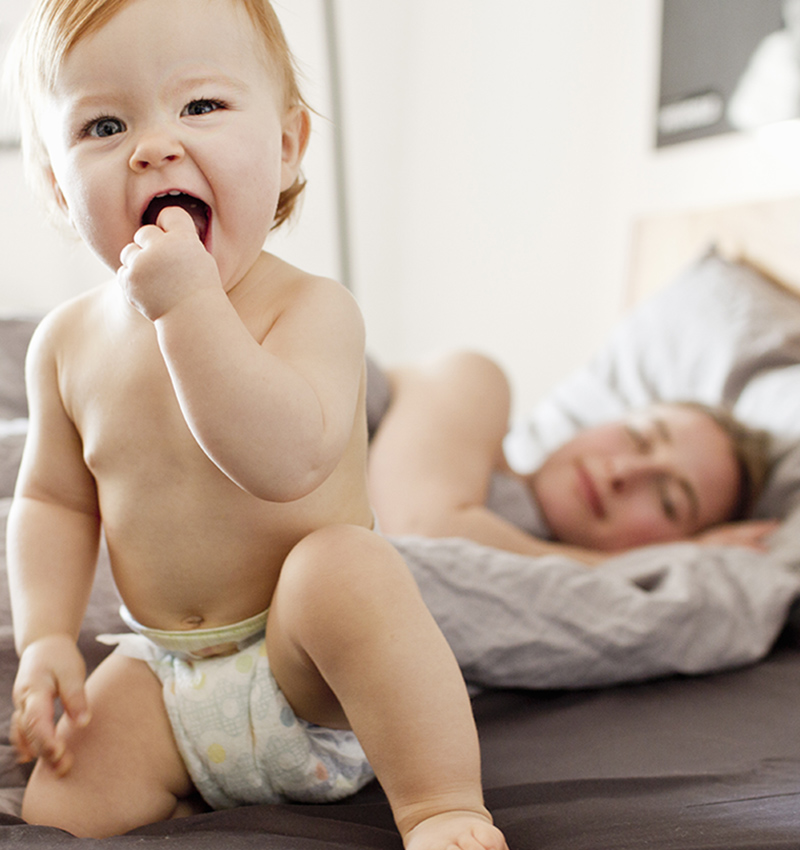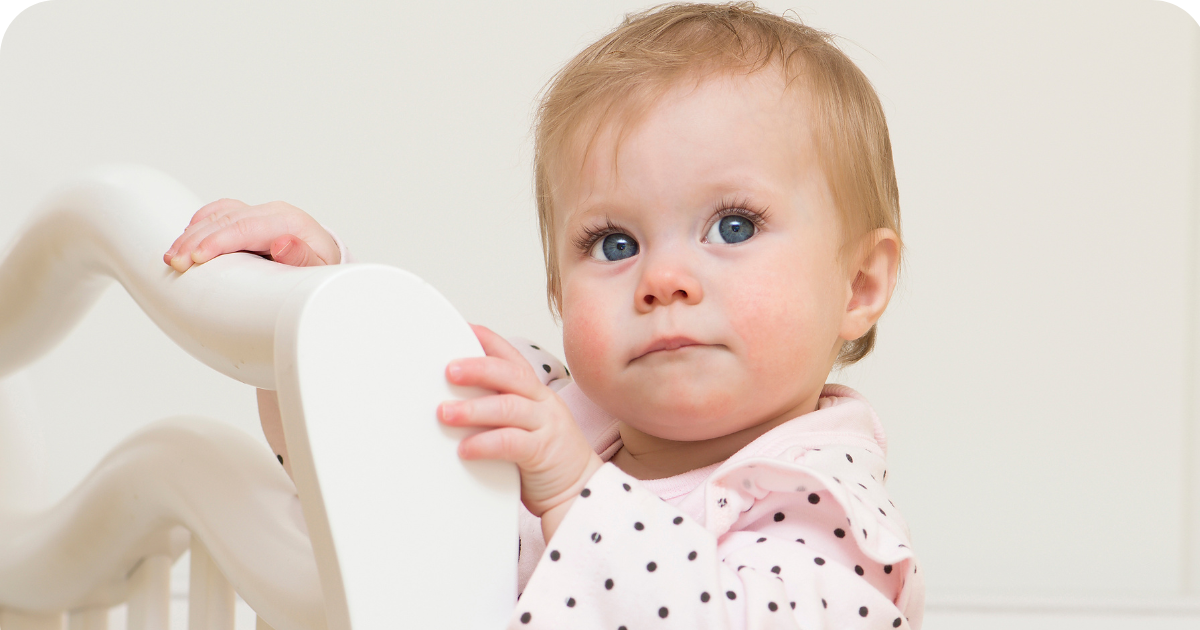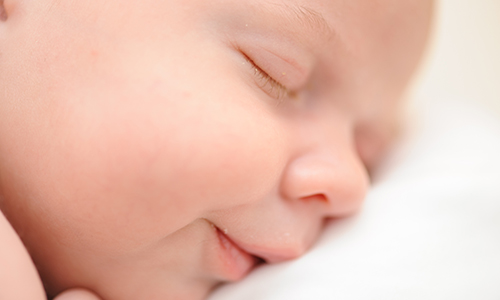The complicated answer is NO. But the easy answer is, if your baby develops independent sleep skills, you would never know they are waking up!
The science behind Why Your Baby Will Never Truly Sleep Through the Night —>
It’s a normal, natural part of the human sleep cycle to wake up multiple times per night. We’re all familiar with the various stages of sleep from our own experience. You might not be able to put a name to these stages, but you’ve certainly felt the difference between waking from a light sleep and a deep one.
When we fall asleep, we spend the initial period in a light stage of sleep and gradually progress into a deeper one. We stay there for a little while and then gradually re-emerge into the lighter stage, and when we do this, there’s a good chance that we’ll wake up. This whole process, from start to finish, going from light sleep to deep sleep and back again, only takes between 90 – 110 minutes for an adult. The process repeats itself pretty easily. Either we’ll wake up for a minute or two and fall right back to sleep, or we might not even really break the surface at all. Ideally, this happens five or six times in a row, and the end results is: we get a restful, restorative snooze through the night.
So that’s the gist for adults. But what about our little ones?
Infants, despite their increased need for sleep, have a much shorter sleep cycle than adults. On average, an infant goes from light sleep to deep sleep and back again in roughly 50 minutes.
This is where the essential elements of sleep training come into play. Sleep training doesn’t teach your child to stay asleep, or spend more time in any one stage of the sleep cycle, but it DOES teach your baby to fall asleep independently initially. By doing so, they learn the skills they need to fall back to sleep on their own.
So, they’ll wake up after a sleep cycle, their brain will signal them to go back to sleep, and that’s exactly what they’ll do.
Now that you understand the foundation of your little one’s sleep cycles, please understand we’re not doing anything that actually influences or alters your baby’s natural sleep. We’re just giving them the skills to fall asleep independently after they wake up, which, as you probably know by now, they’re going to do multiple times a night.
One of the biggest arguments you might hear from critics of sleep training is, “Babies are supposed to wake up at night!”. As you’ve read, that’s absolutely correct. Babies, just like adults, ARE supposed to wake up at night. However, sleep training is what will teach your little one to stay calm and content when they do wake up, and give them the ability to get back to sleep without any help from mom, a pacifier, or any other exterior source that might not be readily available in the middle of the night.
So if you’re asking whether or not sleep training is going to put your child at an increased risk for SIDS, or if it will somehow alter their natural sleep patterns, or damage them in any way, I can assure you with the full support of the American Academy of Pediatrics, that it will not.What it will do is keep them calm when they wake up in the night, and help to ensure that they get the sleep they need to be happy and healthy.
Although your little one will actually never scientifically sleep THROUGH the nights, they can quickly and easily learn the skills to get back to sleep on their own, and it will SEEM as though they’re sleeping straight through.
Does it seem your little one hasn’t mastered independent skills yet and is still struggling with multiple night wake ups? Let’s talk about sleep techniques and solutions to master those skills for your family!
Resources:
US National Library of Medicine – https://www.ncbi.nlm.nih.gov/pubmedhealth/PMH0072506/
US National Library of Medicine – https://www.ncbi.nlm.nih.gov/pmc/articles/PMC3439810/
American Academy of Pediatrics – https://www.aap.org/en-us/about-the-aap/aap-press-room/pages/Infant-Sleep-Training-is-Effective-and-Safe-Study-Finds.aspx








